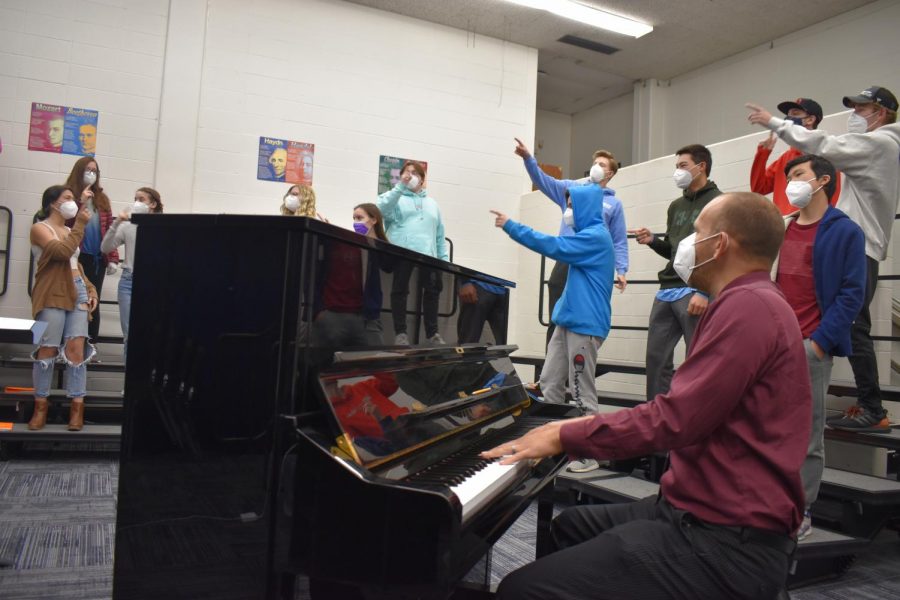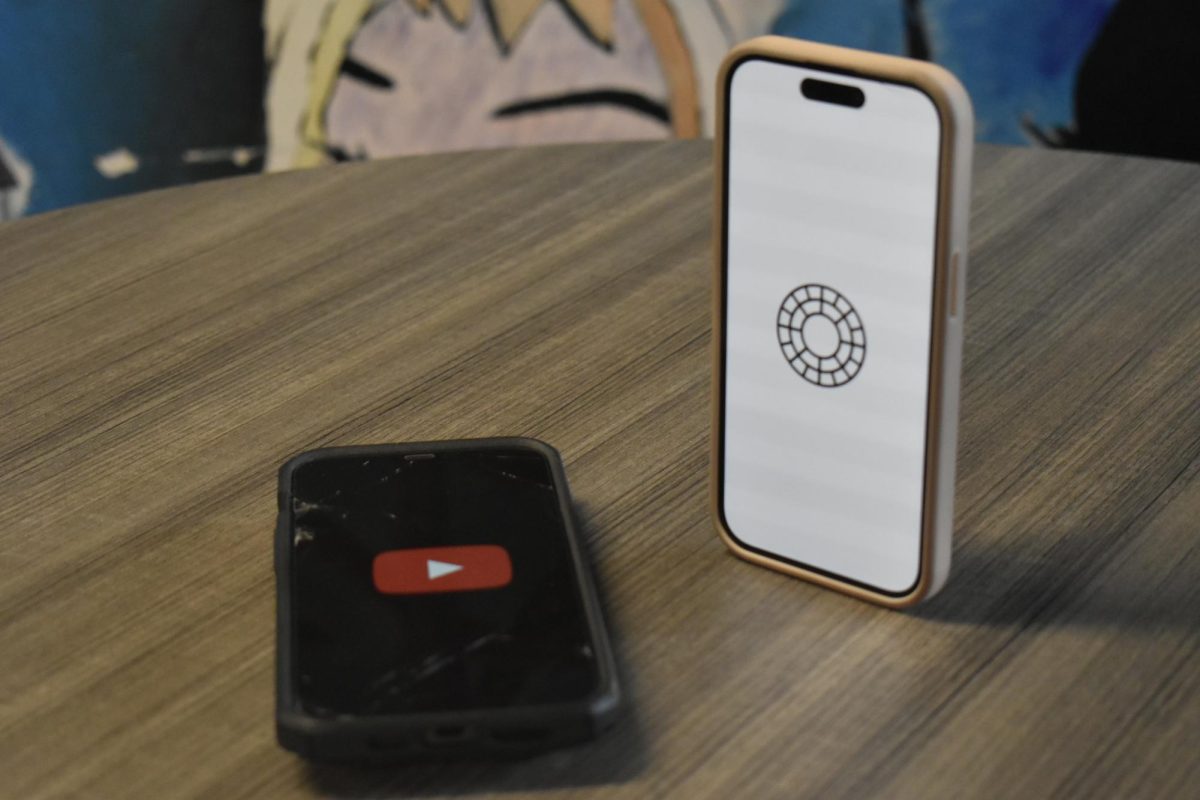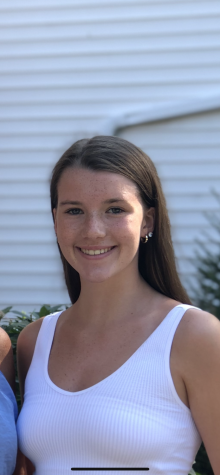Imagine being a fly on the wall and hearing the voluminous notes choir teacher Brian Parrish plays while he is teaching his children the solfege scale on his piano, mirroring how he teaches his students at school.
Parrish has a son (5) and a daughter (7). As a teacher, he knows what magic can happen in a music classroom. He wants to see that magic happen for his kids as well.┬Ā
“Every kid is different, but there’s some really cool stuff that could happen, like when you hear yourself playing, or see yourself improve. So it’s kinda like on a kid by kid basis,” Parrish said.┬Ā
Because of the positive impact music has on kids, he wants his own to experience that as well, but in a way that they will enjoy it.┬Ā
“I am navigating all these questions right now. Cause I really don’t know what the right approach is, do I teach them, do I teach them only if I want to be taught, or do I send them to a different teacher,” Parrish said.┬Ā
Orchestra teacher Ed Sandheinrich also has to navigate the world of music with his two boys, who are 15 and 12.┬Ā
“I didn’t want to force them until later because they never really showed an interest, but it is kind of neat to see them doing something like kind of what I do,” Sandheinrich said.
His older son has been playing cello since fifth grade, but he won’t be playing it his junior year.
“I just hope it stays part of their life, but I see it [music] as I want them to enjoy it and appreciate it,” Sandheinrich said.┬Ā
Both Parrish and Sandheinrich┬Ā agree that having an experience with music makes students better learners and better people. Sandheindrich student taught at before school programs before getting state certified to teach full time.┬Ā
“Music is an allegory for life, and once you get into things like dynamics and shaping it is a language that mirrors our language, so you’re learning about music but you’re really learning about yourself and others,” Parrish said.
Parrish has been teaching high school music for nine years now throughout his music-filled childhood, so he knows about the skills and knowledge music teaches kids.
“You have to dive deeper, talk about meaning, and talk about compensation. Music is a language, the younger you start that language, the more proficient you might be,” Parrish said.
Sandheinrichs younger son is in sixth grade and their school taught all online this year. Because of the COVID-19 pandemic stopping his son’s band from practicing in person, SandheinrichŌĆÖs son doesn’t know what a real music class feels like.┬Ā
“They are not in the building, and with music it’s a really tough thing to not be in that group. You can’t have that experience when you are online,” Sandheinrich said.
Sandheinrich found a band summer camp for his son to be more enriched in a group environment to get what the band would feel like in a normal school year.┬Ā
“He is kinda on the fence about it going forward, but he hasn’t experienced that ŌĆśhey, let’s all play music together,ŌĆÖ thing yet. We’re kinda forcing him, but not really. It just isn’t the same as doing a real ensemble experience,” Sandheinrich said.
Parrish lives through teaching his students music, and he would be grateful to music to give that experience to anybody, especially his kids.┬Ā
“[In class] I always wish I had five more minutes in that class, it zooms by, it’s like a rush. [I hope] that my kids could have that same rush,” Parrish said.┬Ā
Both teachers agree they just want their kids to be happy and grow through music, whatever that means for them.
“Put aside the fact that it is fun, put aside the fact that it’s like therapy for some kids, put aside the fact that it expands your brain in ways and it [music] allows you to be more educated later in your life,” Parrish said.





![There are more than 20 open cardio machines at Crunch Fitness. I enjoyed the spacious environment at Crunch, a sentiment that was shared by sophomore Sanjana Daggubati. ŌĆ£[Going to] Crunch Fitness was the right decision because [it] feels more professional. CrunchŌĆÖs workers are laid back, but not to the point where they don't care,ŌĆØ Daggubati said.](https://pwestpathfinder.com/wp-content/uploads/2025/09/IMG_5242-1-1200x900.jpg)

![Various empty Kit Kat wrappers crowd the desk, surrounded by scoring sheets. While production of Kit Kat flavors in the U.S. is limited, Nestl├®, the owner of Kit Kat, manufactures hundreds of unique flavors in Japan, including the flavors ocean salt and passion fruit. ŌĆ£I thought there [were] some interesting flavors, and a lot of them were really unexpected,ŌĆØ senior Elle Levesque said.](https://pwestpathfinder.com/wp-content/uploads/2025/09/image-2.png)


![PantoneŌĆÖs selection of the 2025 Color of the Year is revealed: Mocha Mousse. Ceramics teacher Ashley Drissell enjoys this yearŌĆÖs selection. ŌĆ£Maybe itŌĆÖs the name but [Mocha Mousse] reminds me of chocolate and coffee. It makes me hungry. ItŌĆÖs very rich and decadent,ŌĆØ Drissell said.](https://pwestpathfinder.com/wp-content/uploads/2025/02/DSC_0015-1200x800.jpg)



